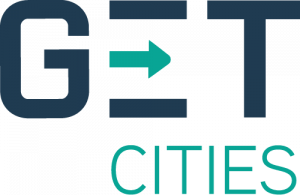GET Cities works to foster programs and interventions that provide equitable outcomes for women, transgender, and non-binary people in tech.
NEW YORK, NEW YORK, UNITED STATES, July 12, 2022 /EINPresswire.com/ -- Starting a business can be difficult for anyone, but it's even more challenging when you're a woman, a person of color, or LGBTQIA+ and want to succeed in this industry. LGBTQIA+ entrepreneurs, for example, are more likely than other business owners to avoid self-identifying as community members for fear it might hurt their chances with capital. In StartOut's 2016 study, "The State Of LGBT Entrepreneurship," almost 40% reported choosing this route because they didn't feel relevant or did not want others' expectations surrounding what type of identity was necessary to succeed at starting up an enterprise.Entrepreneurship is instrumental in building an inclusive economy that advances growth and prosperity for all. The lack of diversity in the tech industry is a huge problem. The work and entrepreneurial culture were designed for a small number of people, primarily white men. In a recent study by Crunchbase, 77% of VC dollars went to companies with white founders regardless of gender. More than 70% of startups that raise venture capital have a white male cofounder who went to Stanford University and/or Harvard University.
Women, people of color, trans and non-binary individuals are severely underrepresented in the entrepreneurial landscape compared to white men. According to Built In, the number of women-owned businesses in the U.S. is on a steady rise, with 40% owned by women entrepreneurs and 64% of new women-owned companies started by women of color. Yet, women only received about 2% of total investor funding, and women-led businesses made up just 4.9% of all VC deals. Seeing that women have made great strides in the world run by men, 79% of women entrepreneurs feel more empowered than they did five years ago. Still, 66 percent say obtaining money has been difficult at times.
As of late, the racial justice movement has given rise to a new sense of urgency among Black startup entrepreneurs in America, with numbers showing an uptick at Crunchbase over the past year. The funding for Black entrepreneurs in the U.S. hit nearly $1.8 billion through half of 2021 - a more than fourfold increase compared to 2020. Led by early-stage startups, 2021's total has already surpassed two-thirds (66%) of what was invested into black-founded businesses during 2020, and one-third (33%) (about 1.4 billion) was invested within just 2019 alone.
Black startups remain excluded from major funding rounds, with only 1.2 percent receiving the record $147 billion in venture capital investments through the first half of 2021. Crunchbase numbers show that compared with the more than 13 percent Black population in America. Statistics show we have a long way toward equity and equality for Black startup entrepreneurs.
StartOut found that among entrepreneurs, there's a distinct lack of diversity when it comes to sexuality and gender identity. Just three percent of lesbian-owned businesses report revenue over $5 million, compared with 12 percent for gay men. The gender gap in entrepreneurship is alive and well. According to StartOut, women raised 27% of outside capital to help fund their business compared to 38% of men in the entrepreneurial landscape. For as many obstacles as women, people of color, trans and non-binary business owners may encounter, there's a growing number of resources and practices designed to support marginalized businesses.
GET Cities is committed to giving voice and opportunity to all. GET (Gender Equality in Tech) Cities works within our local city hubs to foster programs and interventions that provide equitable outcomes for women, transgender, and non-binary people in tech. Building inclusive pathways to technologies, capital and networks is critical for entrepreneurial success.
Leslie Lynn Smith, National Director and GET Cities fearlessly support entrepreneurs and other alternative opportunities for those traditionally left out of technology's economic bubble and workforce - including women, BIPOC, and the LGBTQ+ community.
GET Cities is working to build a more inclusive future in tech. To learn more about GET Cities, visit www.getcities.org.
Lakisha Barton
GET Cities
+1 347-720-5099
email us here
Visit us on social media:
LinkedIn


